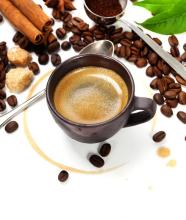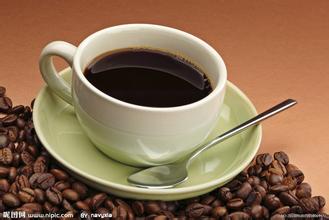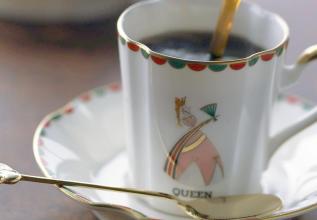Introduction to the characteristics of Salvadoran Coffee Flavor Manor with mild and moderate sweetness
El Salvador boutique coffee is concentrated in the volcanic rock producing areas of Santa Ana in the west and Charantanan fruit in the northwest. The top 10 cup tests in recent years almost all come from these two producing areas, with an elevation of about 9-1500 meters, mainly bourbon (68%). Followed by Pacas (29%), mixed-race Pacamara, Dulaai and Kaddura accounted for only 3% overall Salvadoran coffee inherits the mild quality of Sino-American coffee, which is soft, slightly sour and has a beautiful sweetness. At the same time, it also has its own characteristics: the aromatic taste is slightly sour and very soft; it is pure and has no miscellaneous flavor, and the taste balance is excellent; the smooth feeling like cream chocolate is impressive; the dense feeling of coffee in the mouth makes the coffee have a deep taste, and the long finish should not underestimate the coffee production of El Salvador. In its heyday, it was once the fourth largest coffee producer in the world, but decades of civil war almost dragged down the coffee industry. fortunately, the war has stopped in recent years, and the coffee industry has come back to life. The only benefit that the civil war brought to the Salvadoran country was that the farmers' fields were barren and failed to catch up with the most popular Katimo exposure train in the past two decades, thus preserving the ancient varieties of bourbon and Tibica, that is to say, El Salvador still uses the most traditional shade planting, which is of positive significance to the aroma of coffee. In 2005, the Salvadoran mixed-race variety Pacamara boasted in coe, which confused many international cup testers and did not know how to score it. It never expected that this hybrid bean not only broke the mellow boundary of coffee, but also expanded the visibility of Salvadoran coffee. El Salvador Coffee ranks side by side with Mexico and Guatemala as the producer of Asa and Merdo, and is fighting for the first or second place in China and the United States with other countries. The highlands of origin are large coffee beans of all sizes, which are fragrant and mild in taste. Like Guatemala and Costa Rica, coffee in El Salvador is graded according to altitude. The higher the altitude, the better the coffee. It is divided into three grades according to elevation: SHB (strictlyhighgrown) = highlands, HEC (highgrowncentral) = mid-highlands, and CS (centralstandard) = lowlands. The best brand is Pipil, which is what the Aztec-Mayan (Aztec-Mayan) called coffee, which has been recognized by the American Organic Certification Society (OrganicCertifiedlnstituteofAmerica).

Important Notice :
前街咖啡 FrontStreet Coffee has moved to new addredd:
FrontStreet Coffee Address: 315,Donghua East Road,GuangZhou
Tel:020 38364473
- Prev

Introduction to the characteristics of Tanzania Coffee Flavor Manor with Sweet Citrus and Flower aroma
In December 1992, the Zanzibar government joined the Organization of the Islamic Conference (OIC) without authorization, which was strongly opposed by the coalition government and was forced to withdraw in 1993. In October 1995, the first multi-party general election was held in Tanzania. Mkapa was elected president of the United Republic, and Salmin was re-elected president of Zanzibar by a narrow margin. Since 1996, the Sang opposition party has stepped up its action against the coalition.
- Next

Special sweet Panamanian Pokuit butterfly coffee beans boutique coffee taste manor area introduction
Panama City (Panama city), located on the peninsula near the mouth of the Pacific coast of the Panama Canal. Facing the Gulf of Panama and backed by the Ankang Valley, the city is picturesque. Originally an Indian fishing village, the old city was founded in 1519 and became the capital after Panama declared its independence from Colombia in 1903. The 2010 Panamanian National Congress has a total population of 1.71 million.
Related
- Detailed explanation of Jadeite planting Land in Panamanian Jadeite Manor introduction to the grading system of Jadeite competitive bidding, Red bid, Green bid and Rose Summer
- Story of Coffee planting in Brenka region of Costa Rica Stonehenge Manor anaerobic heavy honey treatment of flavor mouth
- What's on the barrel of Blue Mountain Coffee beans?
- Can American coffee also pull flowers? How to use hot American style to pull out a good-looking pattern?
- Can you make a cold extract with coffee beans? What is the right proportion for cold-extracted coffee formula?
- Indonesian PWN Gold Mandrine Coffee Origin Features Flavor How to Chong? Mandolin coffee is American.
- A brief introduction to the flavor characteristics of Brazilian yellow bourbon coffee beans
- What is the effect of different water quality on the flavor of cold-extracted coffee? What kind of water is best for brewing coffee?
- Why do you think of Rose Summer whenever you mention Panamanian coffee?
- Introduction to the characteristics of authentic blue mountain coffee bean producing areas? What is the CIB Coffee Authority in Jamaica?

